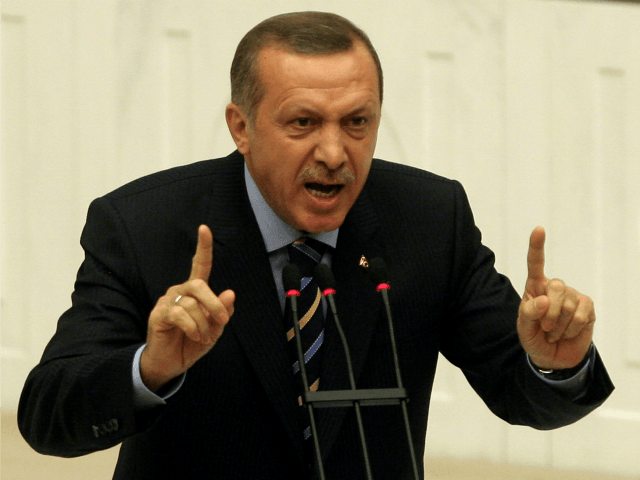Turkey’s Foreign Ministry warned that Ankara would not hesitate to bomb the Syrian Kurdish People’s Protection Units (YPG/YPJ) should it seek to remain in the city of Manbij following the eradication of the Islamic State from that area. The YPG has been a longtime American ally, and the Pentagon is working to assert that it does not pose a threat to Turkey.
“We do not want any of our allies to stand with terrorist groups. We stated earlier that Turkey will hit the YPG unless they withdraw from Manbij,” Foreign Minister Mevlüt Çavuşoğlu said on Thursday. “They [the YPG] should leave Manbij because it has no relationship to them. Manbij belongs to Arabs. Likewise, Raqqa completely belongs to Arabs.”
Çavuşoğlu emphasized, however, that the disagreement with the United States over the YPG would not lead to a diplomatic rift between the two nations: “Our fight against the YPG or another terrorist organization should not put us at odds with the U.S.”
The YPG is the military force of the Syrian Kurdish Democratic Union Party (PYD) and makes up the largest contingent of the Syrian Democratic Forces (SDF) coalition. The SDF cooperates with the United States against the Islamic State in Syria, though American officials have insisted they are only equipping the Arab elements of the SDF.
On Wednesday, Lieutenant General Stephen Townsend, the American commander in charge of the operation against the Islamic State in the area, told reporters that he did not consider the YPG a problematic entity, given its success in fighting the Islamic State. “Of those YPG fighters, I’ve talked to their leaders and we’ve watched them operate and they continually reassure us that they have no desire to attack Turkey, that they are not a threat to Turkey, in fact, that they desire to have a good working relationship with Turkey,” he insisted at a Pentagon briefing.
“And I have seen absolutely zero evidence that they have been a threat to, or have supported any attacks on, Turkey from Northern Syria over the last two years,” Townsend concluded.
The YPG/YPJ adhere to a secular, leftist ideology. Turkey insists that the YPG is indistinguishable from the Kurdistan Workers’ Party (PKK), a U.S.-designated Marxist terrorist organization. The United States considers them two separate entities, however, and has relied on the YPG for intelligence used in airstrikes against the Islamic State. American citizens have volunteered to fight with the YPG and died in exchanges with ISIS.
The Turkish government has attacked YPG positions before, despite its expressed intent of removing both the Islamic State and the “tyrant” Bashar al-Assad from power in Syria. Earlier this month, the Kurdish outlet Rudaw reported that Turkish soldiers exchanged gunfire with YPG fighters near the Syrian-Turkish border, damaging some Turkish fighter vehicles. The YPG claims much of the Syrian border areas as Kurdish “Rojava,” which they seek to establish as a sovereign nation.
Raqqa, the capital of the Islamic State “Caliphate,” lies outside of Rojava, however, and was largely Arab before the Islamic State invaded. Kurdish National Council (KNC) Fouad Aliko asserted at a peace summit in Geneva Thursday that the YPG have no interest in fighting in Raqqa. “The role of the PKK/PYD will be limited to only surrounding the city. The main force to fight in the operation will include Arabs,” he told the Turkish state news outlet Anadolu Agency. The KNC representative made clear his organization did not support the YPG/YPJ, however, claiming the group was committing acts of “persecution” against civilians.
Reports have indicated in the past, though, that the United States is seeking to support the YPG’s participation in the liberation of Raqqa. The YPG itself announced in November that it expected to play a role in the liberation of Raqqa.
Townsend remarks follow an unannounced meeting between U.S. Central Command (CENTCOM) General Joseph Votel and U.S. allies on the ground in Syria last week. Votel met with members of the SDF to discuss what the United States can do to further aid the fight against ISIS.
“During the conversation, General Votel understood their need for logistical support and resources that may be greater than what they have been provided up until now,” spokesman Colonel John Thomas said following the visit. “While assuring them that this was a need he understands, he did not make specific promises.”
The Pentagon insisted that its support for the SDF is limited only to the minority Syrian Arab Coalition (SAC) and not the YPG/YPJ.

COMMENTS
Please let us know if you're having issues with commenting.